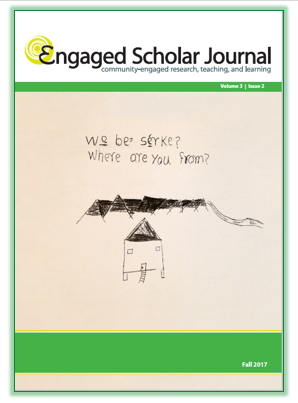Ulàpeitök: Using Bribri Indigenous Teachings to Develop a Ph.D. Research Methodology
DOI:
https://doi.org/10.15402/esj.v3i2.336Keywords:
Costa Rica, ethics, Indigenous methodologies, qualitative researchAbstract
Although there is a growing interest in Indigenous research, education regarding how to put Indigenous research into practice is not often part of academic training. To increase the awareness of how Indigenous methodologies can be applied to academic research, we describe how we used Bribri Indigenous teachings to develop a Ph.D. research methodology for a food security project in Costa Rica. Our research approach was based on a Bribri concept related to cooperation, ulàpeitök; this concept guided our work and helped to reduce the negative consequences associated with conventional research with Indigenous people (e.g., extractive practices, reinforcement of gender inequality, misrepresenting cultural information). We identified three considerations that may be useful for other scholars applying Indigenous teachings to academic research: 1) build flexibility into the entire research program, 2) ensure that community-level and university-level researchers are willing to play multiple roles beyond those associated with conventional research, and 3) proceed with an ethic of friendship. Our work is relevant to scholars working in Indigenous/non-Indigenous research teams that aim to transform conventional research approaches to ensure that they support human rights, equity, and cultural continuity. In Costa Rica, our research is specifically relevant to building wider acceptance of Indigenous methodologies in higher education.
Downloads
Published
How to Cite
Issue
Section
License
Authors who publish with this journal agree to the following terms:
- Authors retain copyright and grant the journal right of first publication with the work simultaneously licensed under a Creative Commons Attribution License CC BY 4.0 that allows others to share the work with an acknowledgement of the work's authorship and initial publication in this journal.
- Authors are able to enter separate, additional contractual agreements for the non-exclusive distribution of the journal's published version of the work (e.g., post it to an institutional repository or publish it in a book), with an acknowledgement of its initial publication in this journal.
- Authors are permitted to post their work online (e.g., in an institutional repository or on their website) after the publication of their work in the Engaged Scholar Journal.
- Please note that while every opportunity will be taken to ensure author participation in the editing process, due to time constraints final copyediting changes may be made before publication to ensure APA adherence throughout all submissions.




